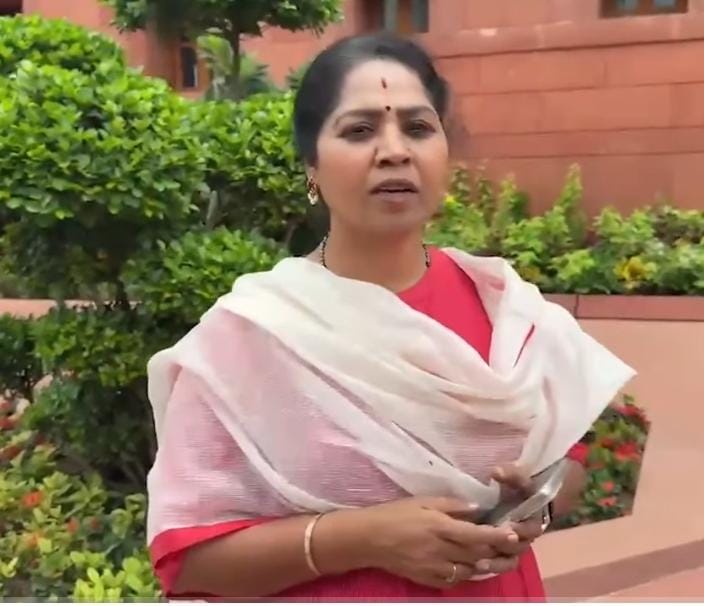
Picture credit Social media
MP’S CHAIN SNATCHING IN EMBASSY AREA PUTS QUESTION MARK ON HOME MINISTRY
NEW DELHI: A recent chain-snatching incident involving Congress MP Sudha R has once again put the spotlight on the state of public security in India’s capital, particularly in high-security zones. The lawmaker from Mayiladuthurai, Tamil Nadu, was on her routine morning walk near the Poland Embassy at around 6:15 a.m. on Monday when an unidentified assailant snatched her chain and fled. The MP sustained minor injuries to her neck during the attack.
The incident has sparked concerns over the security apparatus in Delhi, especially given the proximity to sensitive diplomatic zones. An FIR has been registered, and the MP has appealed directly to Union Home Minister Amit Shah to ensure swift action and the arrest of the perpetrator.
This incident comes at a time when the Delhi Police, which functions directly under the Ministry of Home Affairs, is already facing sharp criticism for its skewed deployment priorities — with an overwhelming focus on VVIP security at the expense of routine law enforcement.
In recent years, particularly under the current political regime, the Delhi Police has been stretched thin due to ever-increasing demands for VVIP security and ceremonial policing, commonly referred to as bandobast. Despite being one of India’s most trained and resource-rich forces, the department finds itself routinely pulled away from core duties of crime prevention, investigation, and community policing.
A significant chunk of Delhi Police personnel is now routinely assigned to safeguard VVIPs — ministers, MPs, party functionaries, visiting dignitaries, and even political rallies — often sidelining crime-prone neighborhoods and under-policed areas.
The list of individuals receiving official security cover has expanded considerably. It now includes not only constitutional authorities but also politically influential individuals, religious leaders, businessmen, and controversial figures. These additions strain manpower and surveillance resources, often without any transparent review mechanism.
Delhi now sees an unending calendar of events — inaugurations, religious processions, VIP visits, political marches, and protests — many requiring elaborate bandobast duties. Officers are frequently deployed at short notice, often for long hours, reducing availability for routine policing.
Officer Morale and Burnout:
The shift towards non-core duties has hit morale within the force. Officers complain of long hours, limited breaks, and being repeatedly pulled away from meaningful investigative work. This affects their mental health, job satisfaction, and their ability to engage meaningfully with the public.
Specialised teams — including those handling cybercrime, counter-terrorism, and narcotics — are often reassigned to VVIP duty. This results in serious cases being delayed or mishandled, reducing the efficiency of the force in areas that demand expertise and focus.
There is a growing perception that the Delhi Police is being used more for political optics than public service. The thin line between official protocol and political showmanship is increasingly blurred, raising concerns about the neutrality and autonomy of the force.
Being the seat of national power, Delhi naturally hosts a larger number of high-profile visitors and events. However, the current governance style — marked by frequent political mobilisation and centralised control — has further compounded pressures on an already stretched police force.
The chain-snatching incident involving an MP in a diplomatic zone is not just a matter of crime, but a stark reflection of misplaced policing priorities. Without a rational reassessment of security entitlements, reduced reliance on ceremonial deployments, and a strengthening of basic law .
[Writer is a Senior Journalist and Political Commentator]





